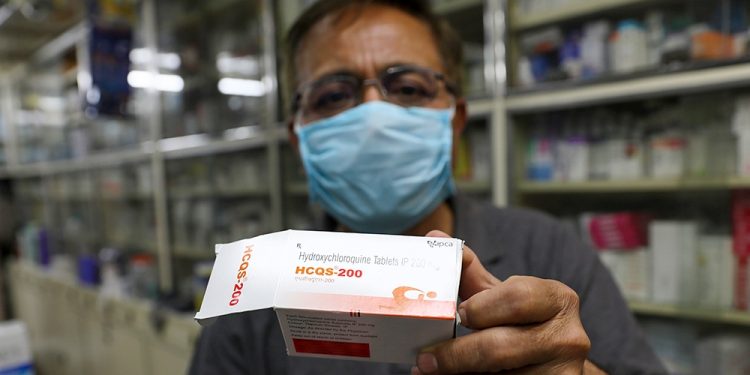New Delhi: The coronavirus pandemic seems to have offered India with an opportunity to improve its diplomatic ties with nations, even with some like Malaysia who have been critical of the government’s actions in Jammu and Kashmir.
Soon after the outbreak of COVID-19, the country had banned the export of pharmaceuticals March 25. It was in view of the global rush for several medicines to combat the pandemic. But it was forced to reverse its decision when US President Donald Trump threatened to retaliate if New Delhi did not ship anti-malarial drug hydroxychloroquine (HCQ) to his country.
While foreign policy experts in India were aghast at Trump’s threat, India’s decision to export HCQ changed the US President’s tune quite instantaneously.
HCQ is generally used for treating rheumatoid arthritis and malaria and India is among the largest producers of the drug in the world. The country exports HCQ worth $50m every year.
After India revoked the ban, there were reports that India has decided to export HCQ and other drugs used for treating COVID-19 patients to nearly 30 countries under two categories – humanitarian aid and commercial supply.
India, which is dubbed “the generic pharmacy of the world”, has drawn praise for its decision to export pharmaceuticals to some African, Latin American and South Asian Association for Regional Cooperation (SAARC) nations on humanitarian grounds.
Aside from Brazilian President Jair Bolsonaro and Israeli Prime Minister Benjamin Netanyahu, several other countries, including the United Kingdom, expressed their gratitude to Prime Minister Narendra Modi, earning diplomatic goodwill for India.
Ever since the coronavirus outbreak worsened, Modi has been constantly reaching out to the heads of states to create solidarity in fighting the pandemic. In mid-March, Modi proposed a coronavirus fund for SAARC nations, with India itself committing $10m.
Now the question is whether Modi’s drug diplomacy work. The jury is still out on whether these efforts will strengthen India’s diplomatic position.
“In some terms, this decision has earned some goodwill. People are aware that unlike China which has a surplus of PPEs (personal protective equipment) or ventilators and the machinery to produce a lot of these things, India is making genuine sacrifices to show international solidarity and not to earn money,” opines Kanwal Sibal, India’s former foreign secretary.
According to Sibal, these gestures will help India earn goodwill but it still remains a much smaller part of the overall scenario of how developing countries are going to relate to each other after the coronavirus pandemic is brought under control.
Meanwhile, India’s former ambassador to the US, Lalit Mansingh, said at this point, diplomacy should not be discussed in transactional terms.
“When a country makes an appeal for drugs in this kind of calamity, humanity remains the foremost priority in the decision making. It is not about taking advantage of a particular country in a crisis. Right now, it’s the humanitarian sentiment that is uppermost,” Mansingh said.
He claimed that India has not deviated from its policy to help those in need, especially in the pharma sector.







































